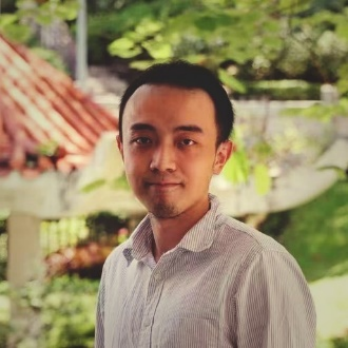一、会议名称:第21届国际数字取证与水印研讨会(21st International Workshop on Digital-forensics and Watermarking, IWDW2022)
二、会议主题:人工智能驱动的多媒体安全
三、会议地点:桂林宾馆,线上:腾讯会议
四、主办单位:广西师范大学,协办单位:中国科学院信息工程研究所
五、会议日程:
(1)2022年11月19日上午
Beijing Time | Contents | |
08:30-09:00 | Opening Ceremony | |
09:00-09:40 | Keynote Speech 1: Towards better generalization capability of face spoofing detection Dr. Haoliang Li, City University of Hong Kong | |
09:40-10:00 | Session 1: Steganography and Steganalysis | “High-performance steganographic coding based on sub-polarized channel” by Haocheng Fu, Xianfeng Zhao and Xiaolei He |
10:00–10:20 | “A general steganalysis method of QR codes” by Jia Chen, Kunlin Chen, Yongjie Wang, Xuehu Yan and Longlong Li | |
10:20-10:40 | “High-capacity adaptive steganography based on transform coefficient for HEVC” by Lin Yang, Rangding Wang, Dawen Xu, Li Dong, Songhan He and Fan Liu | |
10:40-10:50 | Coffee/Tea Break | |
10:50-11:00 | “Kick off of the International Comparative Evaluation of STC and SPSC” by Prof. Xianfeng Zhao | |
11:00-11:20 | Session 2: Forensics and Security Analysis (I) | “AdvIR: Evading deepfake detection via portrait image relighting”by Mingcheng Zhang, Lina Wang, Run Wang, Jiatong Liu, Jianpeng Ke and Tian Wu |
11:20-11:40 | “SE-ResNet56: Robust network model for deepfake detection” by Xiaofeng Wang, Zekun Zhao, Ningning Bai, Chi Zhang and Xingfu Hu | |
11:40-12:00 | “Voice conversion using learnable similarity-guided masked autoencoder” by Yewei Gu, Xianfeng Zhao, Xiaowei Yi and Junchao Xiao | |
12:00-12:20 | “Visual explanations for exposing potential inconsistency of deepfakes” by Pengfei Pei, Jinchuan Li, Xianfeng Zhao, Yun Cao and Chengqiao Hu | |
(2)2022年11月19日下午
Beijing Time | Contents | |
14:30-14:50 | Session 3: Forensics and Security Analysis (II)
| “Improving the transferability of adversarial attacks through both front and rear vector method” by Hao Wu, Jinwei Wang, Jiawei Zhang, Xiangyang Luo and Bin Ma |
14:50-15:10 | “Manipulated face detection and localization based on semantic segmentation” by Gen Li, Xianfeng Zhao, Yun Cao and Chengqiao Hu | |
15:10-15:30 | “Deep learning image age approximation - What is more relevant image content or age information?” by Robert Joechl and Andreas Uhl | |
15:30-15:40 | Coffee/Tea Break | |
15:40-16:20 | Keynote Speech 2: Recent Advances in Stegomalware: Development Trends and Detection Opportunities Prof. Wojciech Mazurczyk, Warsaw University of Technology (Poland) & FernUniversitaet in Hagen (Germany) | |
16:20-16:40 | Session 4: Watermarking and Data Hiding | “Physical anti-copying semi-robust random watermarking for QR Code” by Jiale Chen, Li Dong, Rangding Wang, Diqun Yan, Weiwei Sun and Hang-Yu Fan |
16:40-17:00 | “Robust and Imperceptible Watermarking Scheme for GWAS Data Traceability” by Reda Bellafqira, Musab Al-Ghadi, Emmanuelle Genin and Gouenou Coatrieux | |
17:00-17:20 | “Adaptive robust watermarking method based on deep neural networks” by Fan Li, Chen Wan and Fangjun Huang | |
17:20-17:40 | “Adaptive Despread Spectrum-Based Image Watermarking for Fast Product Tracking” by Fei Zhang, Hongxia Wang, Mingze He and Jinhe Li | |
17:40-18:00 | “Reversible Data Hiding via Arranging Blocks of Bit-Planes in Encrypted Images” by Yingying Sun, Guoxiong Xie, Guijin Fan, Chunqiang Yu and Zhenjun Tang | |
18:00-18:20 | “High Capacity Reversible Data Hiding for Encrypted 3D Mesh Models Based on Topology” by Yun Tang, Lulu Cheng, Wanli Lyu and Zhaoxia Yin | |
六、大会特邀报告专家简介

Prof. Wojciech Mazurczyk is a WUT Professor at the Institute of Computer Science, Division of Software Engineering and Computer Architecture, Faculty of Electronics and Information Technology, Warsaw University of Technology (WUT), Poland, where he is a head of the Computer Systems Security Group (CSSG). From 2019 a member of the Committee for Development of Research Excellence at Warsaw University of Technology for the scientific discipline: Computer Science and Telecommunications. He also works as a senior researcher at the Parallelism and VLSI Group at Faculty of Mathematics and Computer Science at FernUniversitaet, Germany. He has been also indicated three times as one of the Top 2% of Scientists of their main subfield discipline in the Stanford List of Top Scientists for 2019, 2020, and 2021.
Prof. Mazurczyk holds B.Sc. (2003), M.Sc. (2004), Ph.D. (2009, with honours) and D.Sc. (habilitation, 2014) all in Telecommunications from WUT. Author or co-author of 2 books, over 150 papers, 2 patent applications, and over 35 invited talks. Involved in many international and domestic research projects as a principal investigator or as a senior researcher. A guest editor of many special issues devoted to network security (among others: IEEE TDSC, IEEE S&P, IEEE Commag). Serving as Technical Program Committee Member of (among others): RAID, IEEE GLOBECOM, IEEE ICC, IEEE LCN, IEEE CNS, ACSAC, ARES and ACM IH&MMSec. From 2016, Editor-in-Chief of an open access Journal of Cyber Security and Mobility. From 2018 to 2021, Associate Editor of the IEEE Transactions on Information Forensics and Security (CoA here). From 2018 to 2020, a Mobile Communications and Networks Series Editor, and from 2013 to 2018, Technical Associate Editor for the IEEE Communications Magazine.
From 2016 Prof. Mazurczyk is an Accredited Cybercrime Expert, Trainer, and a member of the Academic Advisory Network for Europol EC3 (European Cybercrime Center). A founder and coordinator of the Criminal Use of Information Hiding (CUIng) Initiative launched in cooperation with Europol EC3. A founding member of EURASIP Biometrics, Data Forensics and Security (B.For.Sec) Special Area Team. IEEE Senior Member (2013-) and EURASIP member (2015-). Certified PRINCE2 Foundation / PRINCE2 Practitioner project manager.
For over 15 years, he has been serving as an independent consultant in the fields of network security and telecommunications. His research was covered by worldwide media numerous times, including in IEEE Spectrum, New Scientist, MIT Technology Review, The Economist, Der Spiegel, etc.

Dr. Haoliang Li received the B.S. degree in communication engineering from University of Electronic Science and Technology of China (UESTC) in 2013, and his Ph.D. degree from Nanyang Technological University (NTU), Singapore in 2018. He is currently an assistant professor in Department of Electrical Engineering, City University of Hong Kong. His research mainly focuses on AI security, multimedia forensics and transfer learning. He has published over 60 papers in international journals/conferences such as TIFS, TPAMI, IJCV, ICML, NeurIPS, and CVPR. He received the Wallenberg-NTU presidential postdoc fellowship in 2019, doctoral innovation award in 2019, VCIP best paper award in 2020, and ACM SIGSOFT distinguished paper award in 2022.



